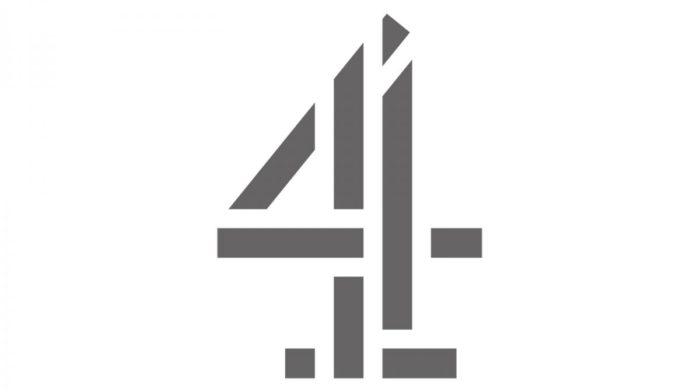Government scraps plans to privatise Channel 4
David Farnor | On 05, Jan 2023
The government has scrapped its plans to privatise Channel 4.
The DCMS, having examined the business case that was announced last year by the prevous administration – and led by former culture secretary Nadine Dorries – has now concluded, after much public and industry outcry, that privatising Channel 4 would be a bad move.
“The privatisation of Channel 4 is not the best way to ensure its long term sustainability,” said the DCMS.
Channel 4 has welcomed the decision, saying that it will allow the broadcaster “to do even more to support creative jobs and skills across the UK, to inspire and develop the UK’s world-leading creative industries, and to continue opening up the sector for those aspiring to a career in TV and film”.
For over 40 years Channel 4 has been a keystone of Britain’s universal, free, public service broadcasting architecture. It has spoken up for diverse and young audiences across the UK, nurtured new talent and held power to account. In recent years, it has already taken steps to invest in a wide range of creative production companies and digital programming. In the future, it aims to double its investment in the 4Skills training scheme and is “determined to make it true that neither where you live nor what your parents do are barriers to a career in our extraordinary industry”.
The government has now declared its intention to legislate to remove the publisher-broadcaster requirement that currently applies to Channel 4.
“We welcome the Government’s commitment to engage closely with the independent production sector about the potential impact of this proposal, and we await further detail. We will contribute constructively to these discussions,” said the broadcaster.
Alex Mahon, Chief Executive of Channel 4, added: Five years ago, we committed to representing the whole of the UK on screen and to growing our impact across the Nations and Regions. Most recently, we took on the job of removing obstacles for young people who thought a career in this industry was somehow not for them.
“I am personally delighted that we will be able to do more, making positive change for the people that others don’t fight for. We will move faster, invest more, take more risks, break down barriers and push boundaries; getting up to do that every day is an utter privilege for those of us lucky enough to work at Channel 4.”
Government plans to sell off Channel 4 spark backlash
5th April 2022
The UK government has announced its intentions to sell off Channel 4, in what has been widely decried by the industry, viewers and politicians alike as a serious misjudgement.
The broadcaster, which launched in 1982, was set up by the then Conservative government under PM Margaret Thatcher. The aim was to provide an alternative to BBC One, BBC Two and ITV, creating a publicly owned broadcaster that could give the public independent content. The result is a unique entity in the UK TV landscape: a broadcaster that receives no taxpayer income and has nothing to do with the Licence Fee that funds the BBC, with its income instead coming from adverts. Any profits it generates are then reinvested in commissioning new programming, thereby building and sustaining the independent TV sector across the UK.
If that model sounds a little hard to understand, you can count Nadine Dorries, the secretary of state for digital, culture, media and sport, among the people who didn’t grasp it as recently as last November – she appeared in front of the culture select committee and and claimed that the broadcaster was receiving public funding, only to be corrected by MP Damian Green.
Now, Nadine has been called out once again, after she tweeted last night that the government intends to move ahead with the privatisation of Channel 4.
“A change of ownership will give Channel 4 the tools and freedom to flourish and thrive as a public service broadcaster long into the future,” she said. “I will seek to reinvest the proceeds of the sale into levelling up the creative sector, putting money into independent production and creative skills in priority parts of the country – delivering a creative dividend for all.”
With Channel 4 already putting money into independent production and creative skills, the move has been questioned by people inside and outside the industry, with some suggesting it’s a deliberate act of retaliation by the government following news coverage that has repeatedly held the government to account in recent years.
By privatising the broadcaster, however, the government would open Channel 4 to the pressures of a commercially minded owner, which would mean that its public service programming would be directed by what makes a profit. This would lead to cuts to such non-money-making content as news, including the vital Unreported World series, which focuses on stories from around the world that otherwise would not receive mainstream TV coverage in the UK.
Such a dramatic change in the broadcaster’s model would also have a knock-on effect for production companies across the UK, which rely on Channel 4’s commissioning to drive their businesses.
“With over 60,000 submissions to the government’s public consultation, it is disappointing that today’s announcement has been made without formally recognising the significant public interest concerns which have been raised,” said Channel 4 in a statement.
“Channel 4 has engaged in good faith with the government throughout the consultation process, demonstrating how it can continue to commission much-loved programmes from the independent sector across the UK that represent and celebrate every aspect of British life as well as increase its contribution to society, while maintaining ownership by the public.
“Recently, Channel 4 presented DCMS with a real alternative to privatisation that would safeguard its future financial stability, allowing it to do significantly more for the British public, the creative industries and the economy, particularly outside London. This is particularly important given that the organisation is only 2 years into a significant commitment to drive up its impact in the UK’s Nations and Regions.
“Channel 4 remains legally committed to its unique public-service remit. The focus for the organisation will be on how we can ensure we deliver the remit to both our viewers and the British creative economy across the whole of the UK.
“The proposal to privatise Channel 4 will require a lengthy legislative process and political debate. We will of course continue to engage with DCMS, Government and Parliament, and do everything we can to ensure that Channel 4 continues to play its unique part in Britain’s creative ecology and national life.”



















